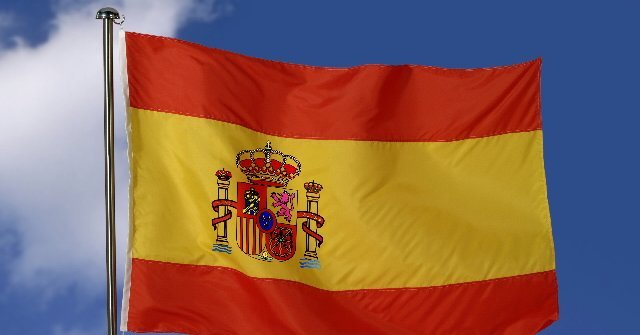The second option is to advance towards a Spanish federation. There are many challenges with this option. The first being that this option has a lot less proponents than the pro-centralisation one. In fact, the federalist cause does not have any prominent figure supporting it in Spain. Mr Zapatero, the current Prime Minister, gave his pro-federalist stance up a while ago. Indeed, it seems that there are very few federalists in Spain but what makes it more complicated is that firstly, most of them are in Catalonia and secondly, they seem to be slowly starting to forego loose the illusion that Spain can ever become a federation. As Mr Carod-Rovira, former Vice-president of the Catalan government, put it: “In Spain nobody wants to be federated with us”.
Indeed, the federalist ideal has been traditionally identified with Catalonia. The First –and short-lived- Spanish Republic of 1873 was a federal one with the Catalan government of Mr Pi i Margall, and since then most of the federalist Spanish intellectuals have come from Catalonia. This has caused some reservations in the rest of the country that has never seen the need for such a change in the institutional setting but, above all, also a change in the understanding of what a pluri-national multicultural Spain intrinsically means. Partly, the problem lies in the fact that Spain has never seen accommodating historical nations such as Catalonia or the Basque Country in the state as a Spanish problem that needed a Spanish solution but rather as a regional problem that the central government should fix.
Federalism has been proven to be the most viable way to satisfy both the need for union and the desire for autonomy around the world. But in Spain this “need for union” is fading away because of the globalised economy –markets and economy are less and less national- and the EU membership -with sovereignty being diluted in the European project. Simultaneously, in some regions the “desire for autonomy” is changing into a growing desire for independence. It is the case that former Spanish federalists and even important figures who always defended the “need” for Spain are starting to look for other options outside the constitution after the ruling of the Constitutional Court on the issue of the Catalan Statute, as well after having seen the lack of feedback in the rest of Spain about the need to define the future of the country as a whole.
There is the danger of reaching a point of no return in this continuous misunderstanding of the parts. The federalisation of the parts is not something that can be agreed overnight by the two ruling parties; it requires a “federalisation process” based on trust in which the Spanish citizens should participate in the creation of this common space in which democracy and rule of law would organise the relationships between regions and peoples. Neither autonomy nor loyalty can be imposed by decree.
Nicolas Schmitt from the University of Friburg describes very well the danger of using federalism as a tool without embracing its values. He contrasts the example of Switzerland in which federalism was a way to organise a common future in a fair and democratic way, to the example of Belgium in which federalism was introduced as an administrative tool to allow the two linguistic communities to coexist without having to cohabitate.
Historically federalism designated a process of union. The federal pact between citizens and states consolidated the process of convergence that in countries such as Germany or Switzerland started as loose confederations and with the time evolved towards a federation. It is a fact that the opposite process of evolving from a unitary state towards a federation does not have many successful records. Czechoslovakia became a federation shortly before disappearing and it looks like Belgium is following a similar path.
The federation should be seen as the consolidation of a relationship. This is why trying to solve problems of coexistence with a forced federation is like trying to force a marriage in a couple that is already undergoing serious crisis. The European Union is a good example of this gradualist approach; the process of integration has been slow but the “need” for the union, as highlighted by the current crisis, is making the process of European federalisation advance with a lively –albeit sometimes harsh- debate in the capitals and in Brussels about how the EU should structure itself. This debate is non-existent in Spain except for some circles in Barcelona and Madrid.
The theory says that Spain should start a federative debate about the internal organisation of the country and the understanding of the country itself. This is crucial as the only alternative is the radicalisation of both Spanish and regional nationalisms. Only after lengthy and in-depth honest and transparent debate, and based upon the will of the Spanish people whilst observing the right to self-determination of the parts, it can be decided whether a federation is the best way to look at a common future or whether a third way could be envisaged –perhaps a confederation?-. Unfortunately, history teaches us that the organisation and disappearance of states very rarely follows academic theories. Currently, Spain lacks the political and intellectual figures capable of raising and facilitating such a complex but necessary debate. Instead, the media, the political class and the academia seem to prefer to look at the future of the country as if it would be a football match between FC Barcelona and Real Madrid in which the purpose would be to knock out the opponent -ignoring the fact they need each other in order to continue playing. Time will tell whether the maturity of the Spanish political debate is that of a football fan or that of a mature democracy.


1. On 19 May 2011 at 13:29, by Jorge Replying to: Federalism and the future of Spain (2nd part)
Replying to: Federalism and the future of Spain (2nd part)
There is a relatively new Spanish federalist party with representation in the Spanish and European Parliament:
http://www.votoutil.es/estado_federal.html
And it is growing... lets see what happens this Sunday.
2. On 20 May 2011 at 02:34, by jofre Replying to: Federalism and the future of Spain (2nd part)
Replying to: Federalism and the future of Spain (2nd part)
Thank you Joan, that is a good overview of teh situation that undoubtfully will be very useful to everyone willing to know about spanish political reality. It is crucial that when Spain is first studied from abroad, is to realize that like in any other conflict, you will know grasp reality untill you hear both sides of the story. It is true Spain might need a reflection for federalism, but probably spaniards are already late for that, and we should start thinking about the only federation that might have a role for spain this century, the European one.
3. On 20 May 2011 at 17:09, by jofre Replying to: Federalism and the future of Spain (2nd part)
Replying to: Federalism and the future of Spain (2nd part)
UPyD isn’t a federalist party, and if it was, it is irrelevant, for it does not have any importance in any of the autonomous comunities that push for a federalization.
Follow the comments: |
|
